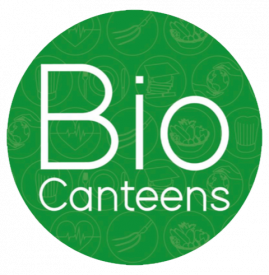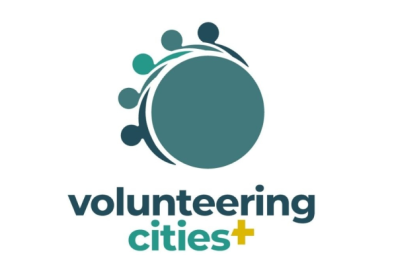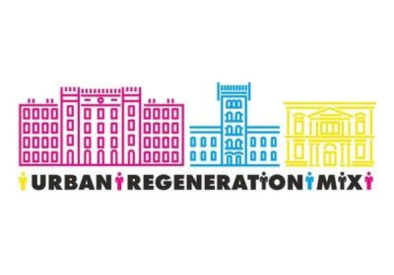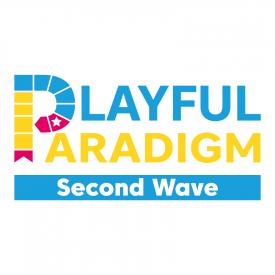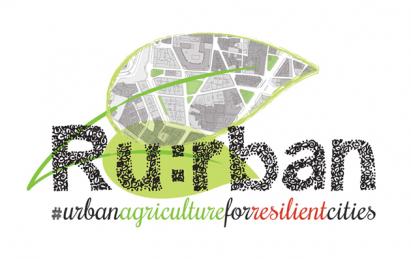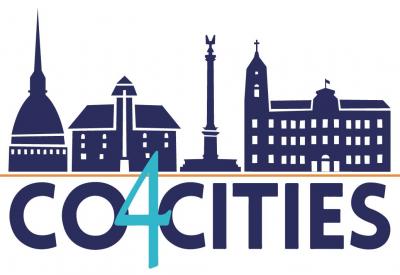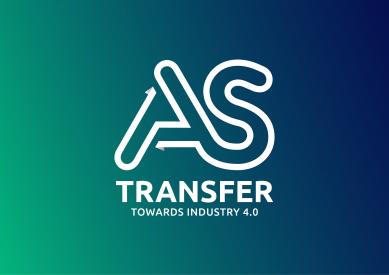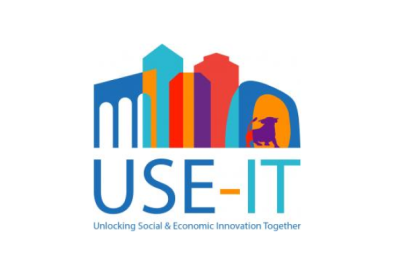Networks
Discover the URBACT Networks, their cities, their plans, and recommendations. An URBACT network brings together EU cities willing to exchange ideas and produce integrated local policies with the help of their peers, local stakeholders and URBACT experts.
Interested in taking part in an URBACT Network? Find out more about the upcoming calls for Networks, how to join a Network as an expert or how to become a Local URBACT Group member, get involved!
- 6913Test Network webmaster CH 22 08 - Màj 15 12 2025
- 6780Ongoing
- 6580Network ExampleOngoingInnovation Transfer Network1704, 1705, 1707, 1706, 17081704EMSV Getafe40.306824642525, -3.7310784679238
- 6580Network ExampleOngoingInnovation Transfer Network1704, 1705, 1707, 1706, 17081705e-Trikala s.a.39.56244843824, 21.759281550873
- 6580Network ExampleOngoingInnovation Transfer Network1704, 1705, 1707, 1706, 17081707Etterbeek50.830640234497, 4.3888955803752
- 6580Network ExampleOngoingInnovation Transfer Network1704, 1705, 1707, 1706, 17081706Maia41.2277393263, -8.6221142839151
- 6580Network ExampleOngoingInnovation Transfer Network1704, 1705, 1707, 1706, 17081708Pomorie42.570476504174, 27.614270811184
- 6259OngoingInnovation Transfer Network917, 154, 217, 1559, 1712, 1713917Újbuda47.463808, 19.022501
- 6259OngoingInnovation Transfer Network917, 154, 217, 1559, 1712, 1713154Amersfoort52.15, 5.383333
- 6259OngoingInnovation Transfer Network917, 154, 217, 1559, 1712, 1713217Bielsko-Biala49.822377, 19.058384
- 6259OngoingInnovation Transfer Network917, 154, 217, 1559, 1712, 17131559Dubrovnik Development Agency42.642655417484, 18.104267209454
- 6259OngoingInnovation Transfer Network917, 154, 217, 1559, 1712, 17131712Mancomunitat l'Horta Nord39.622208303393, -0.32263802638064
- 6259OngoingInnovation Transfer Network917, 154, 217, 1559, 1712, 17131713Sandyford Business District53.275934954632, -6.2059528519814
- 6258OngoingInnovation Transfer Network933, 300, 1694, 866, 973, 987933Utrecht52.092876, 5.10448
- 6258OngoingInnovation Transfer Network933, 300, 1694, 866, 973, 987300Intermunicipal Community of Coimbra Region40.20213267616, -8.4179012888343
- 6258OngoingInnovation Transfer Network933, 300, 1694, 866, 973, 9871694Major Development Agency Thessaloniki40.623432779694, 22.95467761119
- 6258OngoingInnovation Transfer Network933, 300, 1694, 866, 973, 987866Suceava47.651389, 26.255556
- 6258OngoingInnovation Transfer Network933, 300, 1694, 866, 973, 987973Warsaw52.229676, 21.012229
- 6258OngoingInnovation Transfer Network933, 300, 1694, 866, 973, 987987Zagreb45.815011, 15.971877
- 6257OngoingInnovation Transfer Network1635, 1415, 772, 777, 1371, 17111635Chalandri38.021332, 23.79863
- 6257OngoingInnovation Transfer Network1635, 1415, 772, 777, 1371, 17111415Elche
- 6257OngoingInnovation Transfer Network1635, 1415, 772, 777, 1371, 1711772Roeselare50.948714, 3.129871
- 6257OngoingInnovation Transfer Network1635, 1415, 772, 777, 1371, 1711777Rome41.872389, 12.48018
- 6257OngoingInnovation Transfer Network1635, 1415, 772, 777, 1371, 17111371Serpa37.94581, -7.59754
- 6257OngoingInnovation Transfer Network1635, 1415, 772, 777, 1371, 17111711Sombor45.775089702737, 19.113834842724
- 6255OngoingInnovation Transfer Network180, 149, 1710, 686, 1709180Aveiro40.640506, -8.653754
- 6255OngoingInnovation Transfer Network180, 149, 1710, 686, 1709149Alytus54.3963, 24.0459
- 6255OngoingInnovation Transfer Network180, 149, 1710, 686, 17091710Business Kolding55.567253790475, 9.8915777527833
- 6255OngoingInnovation Transfer Network180, 149, 1710, 686, 1709686Oulu65.043710969119, 25.453335552099
- 6255OngoingInnovation Transfer Network180, 149, 1710, 686, 17091709Płock52.547074347443, 19.79172465633
- 6254OngoingInnovation Transfer Network1704, 1705, 1707, 1706, 17081704EMSV Getafe40.306824642525, -3.7310784679238
- 6254OngoingInnovation Transfer Network1704, 1705, 1707, 1706, 17081705e-Trikala s.a.39.56244843824, 21.759281550873
- 6254OngoingInnovation Transfer Network1704, 1705, 1707, 1706, 17081707Etterbeek50.830640234497, 4.3888955803752
- 6254OngoingInnovation Transfer Network1704, 1705, 1707, 1706, 17081706Maia41.2277393263, -8.6221142839151
- 6254OngoingInnovation Transfer Network1704, 1705, 1707, 1706, 17081708Pomorie42.570476504174, 27.614270811184
- 6253OngoingInnovation Transfer Network747, 146, 1703, 1425, 1701, 673, 1702747Ravenna44.417977, 12.201882
- 6253OngoingInnovation Transfer Network747, 146, 1703, 1425, 1701, 673, 1702146Altea38.599406, -0.050437
- 6253OngoingInnovation Transfer Network747, 146, 1703, 1425, 1701, 673, 17021703Den Helder52.956309029722, 4.7518782660337
- 6253OngoingInnovation Transfer Network747, 146, 1703, 1425, 1701, 673, 17021425Dunaújváros46.958953, 18.914661
- 6253OngoingInnovation Transfer Network747, 146, 1703, 1425, 1701, 673, 17021701Kragujevac44.015242067649, 20.907858152807
- 6253OngoingInnovation Transfer Network747, 146, 1703, 1425, 1701, 673, 1702673Olomouc49.594606, 17.252406
- 6253OngoingInnovation Transfer Network747, 146, 1703, 1425, 1701, 673, 17021702Pireas Plus - Development Organisation of Piraeus37.943806112885, 23.645594810174
- 6250OngoingInnovation Transfer Network897, 1536, 298, 768, 1700897Torino45.070312, 7.686857
- 6250OngoingInnovation Transfer Network897, 1536, 298, 768, 17001536Associação de Municípios de Fins Específicos Quadrilátero Urbano
- 6250OngoingInnovation Transfer Network897, 1536, 298, 768, 1700298Cluj-Napoca46.766667, 23.583333
- 6250OngoingInnovation Transfer Network897, 1536, 298, 768, 1700768Riga56.949649, 24.105186
- 6250OngoingInnovation Transfer Network897, 1536, 298, 768, 17001700Sant Boi de Llobregat41.345471752292, 2.0352379409108
- 6249OngoingInnovation Transfer Network599, 272, 332, 509, 724, 1698, 962599Milan45.465422, 9.185924
- 6249OngoingInnovation Transfer Network599, 272, 332, 509, 724, 1698, 962272Cartagena37.625683, -0.996584
- 6249OngoingInnovation Transfer Network599, 272, 332, 509, 724, 1698, 962332Dublin53.349805, -6.26031
- 6249OngoingInnovation Transfer Network599, 272, 332, 509, 724, 1698, 962509Korydallos37.981047, 23.649849
- 6249OngoingInnovation Transfer Network599, 272, 332, 509, 724, 1698, 962724Pori61.4852, 21.797444
- 6249OngoingInnovation Transfer Network599, 272, 332, 509, 724, 1698, 9621698Valmiera57.531438211155, 25.405747183401
- 6249OngoingInnovation Transfer Network599, 272, 332, 509, 724, 1698, 962962Vila Nova de Gaia41.13363, -8.61742
- 6248OngoingInnovation Transfer Network717, 1570, 1696, 1697, 577, 637717Piraeus37.964, 23.632367
- 6248OngoingInnovation Transfer Network717, 1570, 1696, 1697, 577, 6371570Fót47.617113759279, 19.187014528179
- 6248OngoingInnovation Transfer Network717, 1570, 1696, 1697, 577, 6371696Geel51.162806370515, 4.9900742617317
- 6248OngoingInnovation Transfer Network717, 1570, 1696, 1697, 577, 6371697Liepaja Municipal Police56.5182869245, 21.014216567547
- 6248OngoingInnovation Transfer Network717, 1570, 1696, 1697, 577, 637577Manresa41.729283, 1.822515
- 6248OngoingInnovation Transfer Network717, 1570, 1696, 1697, 577, 637637Naples40.851775, 14.268124
- 6245OngoingInnovation Transfer Network1692, 1628, 1693, 1694, 637, 16951692Regional Public Service Brussels - Brussels Housing50.834837866056, 4.3549196373575
- 6245OngoingInnovation Transfer Network1692, 1628, 1693, 1694, 637, 16951628Fuenlabrada40.290418583358, -3.809979414484
- 6245OngoingInnovation Transfer Network1692, 1628, 1693, 1694, 637, 16951693Gaiurb, EM41.141540692685, -8.6163244332157
- 6245OngoingInnovation Transfer Network1692, 1628, 1693, 1694, 637, 16951694Major Development Agency Thessaloniki40.623432779694, 22.95467761119
- 6245OngoingInnovation Transfer Network1692, 1628, 1693, 1694, 637, 1695637Naples40.851775, 14.268124
- 6245OngoingInnovation Transfer Network1692, 1628, 1693, 1694, 637, 16951695Niksic, local community Stara Varos42.782345225681, 18.96082414261
- 4673OngoingAction Planning Network1430, 523, 503, 1536, 843, 331, 374, 1411, 16261430Ferrara44.833332, 11.616667
- 4673OngoingAction Planning Network1430, 523, 503, 1536, 843, 331, 374, 1411, 1626523Larissa39.639022, 22.419125
- 4673OngoingAction Planning Network1430, 523, 503, 1536, 843, 331, 374, 1411, 1626503Komotini
- 4673OngoingAction Planning Network1430, 523, 503, 1536, 843, 331, 374, 1411, 16261536Associação de Municípios de Fins Específicos Quadrilátero Urbano
- 4673OngoingAction Planning Network1430, 523, 503, 1536, 843, 331, 374, 1411, 1626843Sofia42.697708, 23.321868
- 4673OngoingAction Planning Network1430, 523, 503, 1536, 843, 331, 374, 1411, 1626331Druskininkai54.004906, 23.986427
- 4673OngoingAction Planning Network1430, 523, 503, 1536, 843, 331, 374, 1411, 1626374Eurometropolis Strasbourg48.573842, 7.75012
- 4673OngoingAction Planning Network1430, 523, 503, 1536, 843, 331, 374, 1411, 16261411Škofja Loka46.167004950335, 14.305491588906
- 4673OngoingAction Planning Network1430, 523, 503, 1536, 843, 331, 374, 1411, 16261626Bucharest Metropolitan Area Intercommunity Development Association44.435884586987, 26.099431242013
- 4671OngoingAction Planning Network1559, 448, 1620, 238, 879, 628, 1576, 15531559Dubrovnik Development Agency42.642655417484, 18.104267209454
- 4671OngoingAction Planning Network1559, 448, 1620, 238, 879, 628, 1576, 1553448Heraklion35.341846, 25.148254
- 4671OngoingAction Planning Network1559, 448, 1620, 238, 879, 628, 1576, 15531620Câmara de Lobos32.66018952776, -16.987191444873
- 4671OngoingAction Planning Network1559, 448, 1620, 238, 879, 628, 1576, 1553238Brindisi40.632728, 17.941762
- 4671OngoingAction Planning Network1559, 448, 1620, 238, 879, 628, 1576, 1553879Tartu58.377625, 26.729006
- 4671OngoingAction Planning Network1559, 448, 1620, 238, 879, 628, 1576, 1553628Murcia37.99224, -1.130654
- 4671OngoingAction Planning Network1559, 448, 1620, 238, 879, 628, 1576, 15531576Bucharest 6th district44.434503552501, 26.034120374502
- 4671OngoingAction Planning Network1559, 448, 1620, 238, 879, 628, 1576, 15531553Tirana
- 4670OngoingAction Planning Network1616, 1617, 320, 1618, 1551, 1541, 327, 599, 16191616Verona
- 4670OngoingAction Planning Network1616, 1617, 320, 1618, 1551, 1541, 327, 599, 16191617Business Innovation Centre Albacete38.993673, -1.855984
- 4670OngoingAction Planning Network1616, 1617, 320, 1618, 1551, 1541, 327, 599, 1619320Daugavpils55.899178, 26.610201
- 4670OngoingAction Planning Network1616, 1617, 320, 1618, 1551, 1541, 327, 599, 16191618Vila Do Conde41.351605380729, -8.7467009074404
- 4670OngoingAction Planning Network1616, 1617, 320, 1618, 1551, 1541, 327, 599, 16191551Kapodistriaki Development S.A.
- 4670OngoingAction Planning Network1616, 1617, 320, 1618, 1551, 1541, 327, 599, 16191541Pula44.870039, 13.844367
- 4670OngoingAction Planning Network1616, 1617, 320, 1618, 1551, 1541, 327, 599, 1619327Dobrich43.57259, 27.827261
- 4670OngoingAction Planning Network1616, 1617, 320, 1618, 1551, 1541, 327, 599, 1619599Milan45.465422, 9.185924
- 4670OngoingAction Planning Network1616, 1617, 320, 1618, 1551, 1541, 327, 599, 16191619Lezha
- 4667OngoingAction Planning Network829, 131, 1621, 798, 718, 1622, 1623, 796, 578, 1624829Sibenik43.73502, 15.895204
- 4667OngoingAction Planning Network829, 131, 1621, 798, 718, 1622, 1623, 796, 578, 1624131Alba Iulia46.066944, 23.57
- 4667OngoingAction Planning Network829, 131, 1621, 798, 718, 1622, 1623, 796, 578, 16241621Mangualde40.607790655196, -7.7653357321153
- 4667OngoingAction Planning Network829, 131, 1621, 798, 718, 1622, 1623, 796, 578, 1624798Saldus56.66363, 22.48807
- 4667OngoingAction Planning Network829, 131, 1621, 798, 718, 1622, 1623, 796, 578, 1624718Plasencia40.042095, -6.083807
- 4667OngoingAction Planning Network829, 131, 1621, 798, 718, 1622, 1623, 796, 578, 16241622Kalamata
- 4667OngoingAction Planning Network829, 131, 1621, 798, 718, 1622, 1623, 796, 578, 16241623Iisalmi
- 4667OngoingAction Planning Network829, 131, 1621, 798, 718, 1622, 1623, 796, 578, 1624796Saint-Quentin49.846091, 3.28743
- 4667OngoingAction Planning Network829, 131, 1621, 798, 718, 1622, 1623, 796, 578, 1624578Mantova45.156777, 10.788126
- 4667OngoingAction Planning Network829, 131, 1621, 798, 718, 1622, 1623, 796, 578, 16241624Trebinje
- 4669OngoingAction Planning Network539, 1614, 1615, 523, 399, 279, 963, 662, 987539Liepaja56.504668, 21.010806
- 4669OngoingAction Planning Network539, 1614, 1615, 523, 399, 279, 963, 662, 9871614Dienvidkurzeme56.534401, 21.164894
- 4669OngoingAction Planning Network539, 1614, 1615, 523, 399, 279, 963, 662, 9871615Taurage55.249482, 22.288745
- 4669OngoingAction Planning Network539, 1614, 1615, 523, 399, 279, 963, 662, 987523Larissa39.639022, 22.419125
- 4669OngoingAction Planning Network539, 1614, 1615, 523, 399, 279, 963, 662, 987399Gdańsk54.352025, 18.646638
- 4669OngoingAction Planning Network539, 1614, 1615, 523, 399, 279, 963, 662, 987279Cento44.73099, 11.28716
- 4669OngoingAction Planning Network539, 1614, 1615, 523, 399, 279, 963, 662, 987963Viladecans41.315296, 2.013321
- 4669OngoingAction Planning Network539, 1614, 1615, 523, 399, 279, 963, 662, 987662Nova Gorica45.954976, 13.649304
- 4669OngoingAction Planning Network539, 1614, 1615, 523, 399, 279, 963, 662, 987987Zagreb45.815011, 15.971877
- 4664OngoingAction Planning Network1608, 434, 915, 1609, 986, 702, 241, 16101608Rethymno35.370316353599, 24.474342388144
- 4664OngoingAction Planning Network1608, 434, 915, 1609, 986, 702, 241, 1610434Guía de Isora28.21154, -16.77947
- 4664OngoingAction Planning Network1608, 434, 915, 1609, 986, 702, 241, 1610915Turku60.45451, 22.264824
- 4664OngoingAction Planning Network1608, 434, 915, 1609, 986, 702, 241, 16101609Brasov Metropolitan Agency for Sustainable Development45.644048357211, 25.588905635479
- 4664OngoingAction Planning Network1608, 434, 915, 1609, 986, 702, 241, 1610986Zadar44.119371, 15.231365
- 4664OngoingAction Planning Network1608, 434, 915, 1609, 986, 702, 241, 1610702Parma44.801485, 10.327904
- 4664OngoingAction Planning Network1608, 434, 915, 1609, 986, 702, 241, 1610241Brno49.19506, 16.606837
- 4664OngoingAction Planning Network1608, 434, 915, 1609, 986, 702, 241, 16101610Skawina49.979199101997, 19.824173500805
- 4665OngoingAction Planning Network566, 866, 374, 1611, 559, 1612, 1613, 355, 621566Lyon45.757281, 4.835503
- 4665OngoingAction Planning Network566, 866, 374, 1611, 559, 1612, 1613, 355, 621866Suceava47.651389, 26.255556
- 4665OngoingAction Planning Network566, 866, 374, 1611, 559, 1612, 1613, 355, 621374Eurometropolis Strasbourg48.573842, 7.75012
- 4665OngoingAction Planning Network566, 866, 374, 1611, 559, 1612, 1613, 355, 6211611Kuopio
- 4665OngoingAction Planning Network566, 866, 374, 1611, 559, 1612, 1613, 355, 621559Loulé37.137919, -8.020216
- 4665OngoingAction Planning Network566, 866, 374, 1611, 559, 1612, 1613, 355, 6211612Lahti
- 4665OngoingAction Planning Network566, 866, 374, 1611, 559, 1612, 1613, 355, 6211613Benissa38.715193, 0.05051
- 4665OngoingAction Planning Network566, 866, 374, 1611, 559, 1612, 1613, 355, 621355Elefsina
- 4665OngoingAction Planning Network566, 866, 374, 1611, 559, 1612, 1613, 355, 621621Munich48.135125, 11.581981
- 4663OngoingAction Planning Network352, 120, 272, 458, 499, 686, 709, 1433, 955, 963352Eindhoven51.441642, 5.469723
- 4663OngoingAction Planning Network352, 120, 272, 458, 499, 686, 709, 1433, 955, 963120Aarhus56.162939, 10.203921
- 4663OngoingAction Planning Network352, 120, 272, 458, 499, 686, 709, 1433, 955, 963272Cartagena37.625683, -0.996584
- 4663OngoingAction Planning Network352, 120, 272, 458, 499, 686, 709, 1433, 955, 963458Iași47.156944, 27.590278
- 4663OngoingAction Planning Network352, 120, 272, 458, 499, 686, 709, 1433, 955, 963499Klaipèda55.703295, 21.144279
- 4663OngoingAction Planning Network352, 120, 272, 458, 499, 686, 709, 1433, 955, 963686Oulu65.043710969119, 25.453335552099
- 4663OngoingAction Planning Network352, 120, 272, 458, 499, 686, 709, 1433, 955, 963709Perugia43.1122, 12.38878
- 4663OngoingAction Planning Network352, 120, 272, 458, 499, 686, 709, 1433, 955, 9631433Tetovo42.006191, 20.959682
- 4663OngoingAction Planning Network352, 120, 272, 458, 499, 686, 709, 1433, 955, 963955Veszprém47.09327, 17.91149
- 4663OngoingAction Planning Network352, 120, 272, 458, 499, 686, 709, 1433, 955, 963963Viladecans41.315296, 2.013321
- 4662OngoingAction Planning Network391, 266, 1604, 1605, 644, 748, 121, 917, 1606, 1419391Fundão40.137963, -7.501077
- 4662OngoingAction Planning Network391, 266, 1604, 1605, 644, 748, 121, 917, 1606, 1419266Campobasso41.560254, 14.662716
- 4662OngoingAction Planning Network391, 266, 1604, 1605, 644, 748, 121, 917, 1606, 14191604Industrial Systems Institute, Athena Research Center
- 4662OngoingAction Planning Network391, 266, 1604, 1605, 644, 748, 121, 917, 1606, 14191605Písek49.307151, 14.147508
- 4662OngoingAction Planning Network391, 266, 1604, 1605, 644, 748, 121, 917, 1606, 1419644Nevers46.99097, 3.152309
- 4662OngoingAction Planning Network391, 266, 1604, 1605, 644, 748, 121, 917, 1606, 1419748Razlog41.8863, 23.46714
- 4662OngoingAction Planning Network391, 266, 1604, 1605, 644, 748, 121, 917, 1606, 1419121ÅBO AKADEMI UNIVERSITY63.096, 21.61577
- 4662OngoingAction Planning Network391, 266, 1604, 1605, 644, 748, 121, 917, 1606, 1419917Újbuda47.463808, 19.022501
- 4662OngoingAction Planning Network391, 266, 1604, 1605, 644, 748, 121, 917, 1606, 14191606Härnösand
- 4662OngoingAction Planning Network391, 266, 1604, 1605, 644, 748, 121, 917, 1606, 14191419Mostar43.343033, 17.807894
- 4661OngoingAction Planning Network181, 961, 319, 523, 800, 1601, 1602, 1603, 1582, 1639181Avilés43.557952, -5.924665
- 4661OngoingAction Planning Network181, 961, 319, 523, 800, 1601, 1602, 1603, 1582, 1639961Vila Nova de Famalicão41.411243340906, -8.5237895138068
- 4661OngoingAction Planning Network181, 961, 319, 523, 800, 1601, 1602, 1603, 1582, 1639319Dabrowa Gornicza50.32169, 19.194913
- 4661OngoingAction Planning Network181, 961, 319, 523, 800, 1601, 1602, 1603, 1582, 1639523Larissa39.639022, 22.419125
- 4661OngoingAction Planning Network181, 961, 319, 523, 800, 1601, 1602, 1603, 1582, 1639800Salerno40.67545, 14.79328
- 4661OngoingAction Planning Network181, 961, 319, 523, 800, 1601, 1602, 1603, 1582, 16391601Žďár nad Sázavou49.557051, 15.949517
- 4661OngoingAction Planning Network181, 961, 319, 523, 800, 1601, 1602, 1603, 1582, 16391602Promoció Econòmica de Sabadell41.546121, 2.108507
- 4661OngoingAction Planning Network181, 961, 319, 523, 800, 1601, 1602, 1603, 1582, 16391603Neue Effizienz GmbH / City of Solingen51.165749275647, 7.0667301478057
- 4661OngoingAction Planning Network181, 961, 319, 523, 800, 1601, 1602, 1603, 1582, 16391582Bijelo Polje43.033212, 19.747622
- 4661OngoingAction Planning Network181, 961, 319, 523, 800, 1601, 1602, 1603, 1582, 16391639Navan53.647147160485, -6.695877816579
- 4660OngoingAction Planning Network979, 655, 1423, 1547, 1597, 1598, 1626, 1599, 1600, 542979Wroclaw51.107885, 17.038538
- 4660OngoingAction Planning Network979, 655, 1423, 1547, 1597, 1598, 1626, 1599, 1600, 542655Nitra48.314845, 18.087986
- 4660OngoingAction Planning Network979, 655, 1423, 1547, 1597, 1598, 1626, 1599, 1600, 5421423Vila Nova de Poiares40.211013166714, -8.2545273643788
- 4660OngoingAction Planning Network979, 655, 1423, 1547, 1597, 1598, 1626, 1599, 1600, 5421547Boulogne sur mer Développment Côte d'Opale50.723533, 1.604737
- 4660OngoingAction Planning Network979, 655, 1423, 1547, 1597, 1598, 1626, 1599, 1600, 5421597Löbau
- 4660OngoingAction Planning Network979, 655, 1423, 1547, 1597, 1598, 1626, 1599, 1600, 5421598Cehegín38.092514, -1.798024
- 4660OngoingAction Planning Network979, 655, 1423, 1547, 1597, 1598, 1626, 1599, 1600, 5421626Bucharest Metropolitan Area Intercommunity Development Association44.435884586987, 26.099431242013
- 4660OngoingAction Planning Network979, 655, 1423, 1547, 1597, 1598, 1626, 1599, 1600, 5421599Onda39.965016, -0.263003
- 4660OngoingAction Planning Network979, 655, 1423, 1547, 1597, 1598, 1626, 1599, 1600, 5421600Quarto d'Altino
- 4660OngoingAction Planning Network979, 655, 1423, 1547, 1597, 1598, 1626, 1599, 1600, 542542Limerick52.66802, -8.630498
- 4658OngoingAction Planning Network961, 987, 511, 591, 1594, 921, 1654, 1549, 1596961Vila Nova de Famalicão41.411243340906, -8.5237895138068
- 4658OngoingAction Planning Network961, 987, 511, 591, 1594, 921, 1654, 1549, 1596987Zagreb45.815011, 15.971877
- 4658OngoingAction Planning Network961, 987, 511, 591, 1594, 921, 1654, 1549, 1596511Koszalin54.194322, 16.171491
- 4658OngoingAction Planning Network961, 987, 511, 591, 1594, 921, 1654, 1549, 1596591Messina38.18333, 15.55
- 4658OngoingAction Planning Network961, 987, 511, 591, 1594, 921, 1654, 1549, 15961594Satu Mare County Intercommunity Development Association47.790356, 22.874042
- 4658OngoingAction Planning Network961, 987, 511, 591, 1594, 921, 1654, 1549, 1596921Umea63.825847, 20.263035
- 4658OngoingAction Planning Network961, 987, 511, 591, 1594, 921, 1654, 1549, 15961654Újfehértó47.803013729718, 21.676809759048
- 4658OngoingAction Planning Network961, 987, 511, 591, 1594, 921, 1654, 1549, 15961549Department for Development and International Projects of Government of Zenica-Doboj Canton43.85852, 18.414389
- 4658OngoingAction Planning Network961, 987, 511, 591, 1594, 921, 1654, 1549, 15961596Alcoy38.696388, -0.477209
- 4657OngoingAction Planning Network295, 1592, 1593, 300, 897, 522, 512, 1550295Clermont Auvergne Métropole45.777645, 3.098617
- 4657OngoingAction Planning Network295, 1592, 1593, 300, 897, 522, 512, 15501592Szabolcs 05 Regional Development Association of Municipalities47.951842, 22.312646
- 4657OngoingAction Planning Network295, 1592, 1593, 300, 897, 522, 512, 15501593Postojna45.775484233635, 14.21564473686
- 4657OngoingAction Planning Network295, 1592, 1593, 300, 897, 522, 512, 1550300Intermunicipal Community of Coimbra Region40.20213267616, -8.4179012888343
- 4657OngoingAction Planning Network295, 1592, 1593, 300, 897, 522, 512, 1550897Torino45.070312, 7.686857
- 4657OngoingAction Planning Network295, 1592, 1593, 300, 897, 522, 512, 1550522Länsstyrelsen Skane55.990257, 13.595769
- 4657OngoingAction Planning Network295, 1592, 1593, 300, 897, 522, 512, 1550512Krakow50.06465, 19.94498
- 4657OngoingAction Planning Network295, 1592, 1593, 300, 897, 522, 512, 15501550Cluj Metropolitan Area - Intercommunity Development Association46.769921, 23.595024
- 4656OngoingAction Planning Network775, 1560, 631, 1588, 1589, 1591, 1627, 1398775Romagna Faentina44.2229, 11.7717
- 4656OngoingAction Planning Network775, 1560, 631, 1588, 1589, 1591, 1627, 13981560Razvojno raziskovalni center Ormož46.409195415437, 16.151307393825
- 4656OngoingAction Planning Network775, 1560, 631, 1588, 1589, 1591, 1627, 1398631Nagykálló47.874908, 21.844793
- 4656OngoingAction Planning Network775, 1560, 631, 1588, 1589, 1591, 1627, 13981588West Mani36.930501701013, 22.259637815855
- 4656OngoingAction Planning Network775, 1560, 631, 1588, 1589, 1591, 1627, 13981589Intermunicipal Community of Viseu Dão Lafões40.659336135735, -7.9188878187596
- 4656OngoingAction Planning Network775, 1560, 631, 1588, 1589, 1591, 1627, 13981591Ennis Municipal District, Clare County Council52.843817, -8.987887
- 4656OngoingAction Planning Network775, 1560, 631, 1588, 1589, 1591, 1627, 13981627Tori Vallavalitsus58.496254932855, 24.664000548021
- 4656OngoingAction Planning Network775, 1560, 631, 1588, 1589, 1591, 1627, 13981398Berane42.847976714884, 19.865300186171
- 4655OngoingAction Planning Network371, 229, 392, 510, 877, 936, 1585, 1586, 1587371Espoo60.208397779644, 24.642110674826
- 4655OngoingAction Planning Network371, 229, 392, 510, 877, 936, 1585, 1586, 1587229Braga41.545449, -8.426507
- 4655OngoingAction Planning Network371, 229, 392, 510, 877, 936, 1585, 1586, 1587392Gabrovo42.87472, 25.33417
- 4655OngoingAction Planning Network371, 229, 392, 510, 877, 936, 1585, 1586, 1587510Košice48.716667, 21.25
- 4655OngoingAction Planning Network371, 229, 392, 510, 877, 936, 1585, 1586, 1587877Tallinn59.436961, 24.753575
- 4655OngoingAction Planning Network371, 229, 392, 510, 877, 936, 1585, 1586, 1587936Valencia39.469908, -0.376288
- 4655OngoingAction Planning Network371, 229, 392, 510, 877, 936, 1585, 1586, 15871585Jablonec nad Nisou50.723901, 15.168811
- 4655OngoingAction Planning Network371, 229, 392, 510, 877, 936, 1585, 1586, 15871586Agios Dimitrios
- 4655OngoingAction Planning Network371, 229, 392, 510, 877, 936, 1585, 1586, 15871587Mannheim
- 4654OngoingAction Planning Network303, 485, 1571, 221, 796, 307, 509, 968303Copenhagen55.676097, 12.568337
- 4654OngoingAction Planning Network303, 485, 1571, 221, 796, 307, 509, 968485Kavala40.937607, 24.412866
- 4654OngoingAction Planning Network303, 485, 1571, 221, 796, 307, 509, 9681571Pombal39.9170749437, -8.6281304919354
- 4654OngoingAction Planning Network303, 485, 1571, 221, 796, 307, 509, 968221Bistrița47.133333, 24.5
- 4654OngoingAction Planning Network303, 485, 1571, 221, 796, 307, 509, 968796Saint-Quentin49.846091, 3.28743
- 4654OngoingAction Planning Network303, 485, 1571, 221, 796, 307, 509, 968307Coruna43.37135, -8.396
- 4654OngoingAction Planning Network303, 485, 1571, 221, 796, 307, 509, 968509Korydallos37.981047, 23.649849
- 4654OngoingAction Planning Network303, 485, 1571, 221, 796, 307, 509, 968968Vilnius54.687156, 25.279651
- 4652OngoingAction Planning Network911, 152, 217, 434, 524, 1583, 169, 1576, 460911Trikala39.555732, 21.767895
- 4652OngoingAction Planning Network911, 152, 217, 434, 524, 1583, 169, 1576, 460152Amarante41.269852, -8.081177
- 4652OngoingAction Planning Network911, 152, 217, 434, 524, 1583, 169, 1576, 460217Bielsko-Biala49.822377, 19.058384
- 4652OngoingAction Planning Network911, 152, 217, 434, 524, 1583, 169, 1576, 460434Guía de Isora28.21154, -16.77947
- 4652OngoingAction Planning Network911, 152, 217, 434, 524, 1583, 169, 1576, 460524Larnaca34.916667, 33.633333
- 4652OngoingAction Planning Network911, 152, 217, 434, 524, 1583, 169, 1576, 4601583National and Kapodistrian University of Athens37.970208760898, 23.778983847758
- 4652OngoingAction Planning Network911, 152, 217, 434, 524, 1583, 169, 1576, 460169Arezzo43.463284, 11.879634
- 4652OngoingAction Planning Network911, 152, 217, 434, 524, 1583, 169, 1576, 4601576Bucharest 6th district44.434503552501, 26.034120374502
- 4652OngoingAction Planning Network911, 152, 217, 434, 524, 1583, 169, 1576, 460460Idrija46.002945, 14.027846
- 4651OngoingAction Planning Network1391, 217, 1578, 1429, 1390, 1579, 555, 1577, 628, 15751391Cinisello Balsamo
- 4651OngoingAction Planning Network1391, 217, 1578, 1429, 1390, 1579, 555, 1577, 628, 1575217Bielsko-Biala49.822377, 19.058384
- 4651OngoingAction Planning Network1391, 217, 1578, 1429, 1390, 1579, 555, 1577, 628, 15751578Bovec46.342964963133, 13.544310975764
- 4651OngoingAction Planning Network1391, 217, 1578, 1429, 1390, 1579, 555, 1577, 628, 15751429Broumov50.585758, 16.331682
- 4651OngoingAction Planning Network1391, 217, 1578, 1429, 1390, 1579, 555, 1577, 628, 15751390Hannut50.671611, 5.078438
- 4651OngoingAction Planning Network1391, 217, 1578, 1429, 1390, 1579, 555, 1577, 628, 15751579Kamëz41.383917875809, 19.760512463761
- 4651OngoingAction Planning Network1391, 217, 1578, 1429, 1390, 1579, 555, 1577, 628, 1575555Longford53.699221, -7.793984
- 4651OngoingAction Planning Network1391, 217, 1578, 1429, 1390, 1579, 555, 1577, 628, 15751577Mértola37.641805130434, -7.6604600222948
- 4651OngoingAction Planning Network1391, 217, 1578, 1429, 1390, 1579, 555, 1577, 628, 1575628Murcia37.99224, -1.130654
- 4651OngoingAction Planning Network1391, 217, 1578, 1429, 1390, 1579, 555, 1577, 628, 15751575Târgu Frumos47.212364768973, 27.005338464268
- 4650OngoingAction Planning Network933, 850, 391, 132, 895, 298, 680, 1572, 538, 1573933Utrecht52.092876, 5.10448
- 4650OngoingAction Planning Network933, 850, 391, 132, 895, 298, 680, 1572, 538, 1573850Sosnowiec50.286264, 19.104079
- 4650OngoingAction Planning Network933, 850, 391, 132, 895, 298, 680, 1572, 538, 1573391Fundão40.137963, -7.501077
- 4650OngoingAction Planning Network933, 850, 391, 132, 895, 298, 680, 1572, 538, 1573132Albacete38.994349, -1.858542
- 4650OngoingAction Planning Network933, 850, 391, 132, 895, 298, 680, 1572, 538, 1573895Timisoara45.753959, 21.227607
- 4650OngoingAction Planning Network933, 850, 391, 132, 895, 298, 680, 1572, 538, 1573298Cluj-Napoca46.766667, 23.583333
- 4650OngoingAction Planning Network933, 850, 391, 132, 895, 298, 680, 1572, 538, 1573680Osijek45.554674, 18.6953
- 4650OngoingAction Planning Network933, 850, 391, 132, 895, 298, 680, 1572, 538, 15731572Lampedusa35.501560890821, 12.603494784981
- 4650OngoingAction Planning Network933, 850, 391, 132, 895, 298, 680, 1572, 538, 1573538Liège50.63373, 5.56749
- 4650OngoingAction Planning Network933, 850, 391, 132, 895, 298, 680, 1572, 538, 15731573Seine-Saint-Denis48.920052342833, 2.4615992340786
- 4653OngoingAction Planning Network123, 468, 825, 1570, 1571, 1574, 1580, 1411, 1581, 1582123Agen44.203682, 0.617026
- 4653OngoingAction Planning Network123, 468, 825, 1570, 1571, 1574, 1580, 1411, 1581, 1582468Isernia41.5943, 14.2308
- 4653OngoingAction Planning Network123, 468, 825, 1570, 1571, 1574, 1580, 1411, 1581, 1582825Serres41.08499, 23.54757
- 4653OngoingAction Planning Network123, 468, 825, 1570, 1571, 1574, 1580, 1411, 1581, 15821570Fót47.617113759279, 19.187014528179
- 4653OngoingAction Planning Network123, 468, 825, 1570, 1571, 1574, 1580, 1411, 1581, 15821571Pombal39.9170749437, -8.6281304919354
- 4653OngoingAction Planning Network123, 468, 825, 1570, 1571, 1574, 1580, 1411, 1581, 15821574Roman46.925392, 26.927494
- 4653OngoingAction Planning Network123, 468, 825, 1570, 1571, 1574, 1580, 1411, 1581, 15821580Jumilla38.476262, -1.322646
- 4653OngoingAction Planning Network123, 468, 825, 1570, 1571, 1574, 1580, 1411, 1581, 15821411Škofja Loka46.167004950335, 14.305491588906
- 4653OngoingAction Planning Network123, 468, 825, 1570, 1571, 1574, 1580, 1411, 1581, 15821581Tønder54.938144, 8.865073
- 4653OngoingAction Planning Network123, 468, 825, 1570, 1571, 1574, 1580, 1411, 1581, 15821582Bijelo Polje43.033212, 19.747622
- 4649OngoingAction Planning Network229, 943, 986, 571, 877, 650, 701, 407, 1569, 717229Braga41.545449, -8.426507
- 4649OngoingAction Planning Network229, 943, 986, 571, 877, 650, 701, 407, 1569, 717943Varna43.21405, 27.914733
- 4649OngoingAction Planning Network229, 943, 986, 571, 877, 650, 701, 407, 1569, 717986Zadar44.119371, 15.231365
- 4649OngoingAction Planning Network229, 943, 986, 571, 877, 650, 701, 407, 1569, 717571Málaga36.721261, -4.421266
- 4649OngoingAction Planning Network229, 943, 986, 571, 877, 650, 701, 407, 1569, 717877Tallinn59.436961, 24.753575
- 4649OngoingAction Planning Network229, 943, 986, 571, 877, 650, 701, 407, 1569, 717650Nicosia35.182404061128, 33.376798362844
- 4649OngoingAction Planning Network229, 943, 986, 571, 877, 650, 701, 407, 1569, 717701Paris48.860806, 2.343075
- 4649OngoingAction Planning Network229, 943, 986, 571, 877, 650, 701, 407, 1569, 717407Genoa44.411111, 8.932778
- 4649OngoingAction Planning Network229, 943, 986, 571, 877, 650, 701, 407, 1569, 7171569Budva42.291505, 18.840034
- 4649OngoingAction Planning Network229, 943, 986, 571, 877, 650, 701, 407, 1569, 717717Piraeus37.964, 23.632367
- 4648OngoingAction Planning Network1425, 972, 955, 1563, 1564, 1565, 1566, 542, 15671425Dunaújváros46.958953, 18.914661
- 4648OngoingAction Planning Network1425, 972, 955, 1563, 1564, 1565, 1566, 542, 1567972Vratsa43.21, 23.5625
- 4648OngoingAction Planning Network1425, 972, 955, 1563, 1564, 1565, 1566, 542, 1567955Veszprém47.09327, 17.91149
- 4648OngoingAction Planning Network1425, 972, 955, 1563, 1564, 1565, 1566, 542, 15671563Poljcane46.314492377491, 15.578540168899
- 4648OngoingAction Planning Network1425, 972, 955, 1563, 1564, 1565, 1566, 542, 15671564Laboratório da Paisagem41.439190546588, -8.3198753319135
- 4648OngoingAction Planning Network1425, 972, 955, 1563, 1564, 1565, 1566, 542, 15671565Cieza38.238963, -1.421857
- 4648OngoingAction Planning Network1425, 972, 955, 1563, 1564, 1565, 1566, 542, 15671566Siena
- 4648OngoingAction Planning Network1425, 972, 955, 1563, 1564, 1565, 1566, 542, 1567542Limerick52.66802, -8.630498
- 4648OngoingAction Planning Network1425, 972, 955, 1563, 1564, 1565, 1566, 542, 15671567S-Hertogenbosch51.698704833987, 5.3078009563052
- 4648OngoingAction Planning Network1425, 972, 955, 1563, 1564, 1565, 1566, 542, 15671422Sarajevo
- 4647OngoingAction Planning Network189, 1559, 1560, 131, 489, 811, 703, 1561, 1562189Balbriggan53.61278, -6.18194
- 4647OngoingAction Planning Network189, 1559, 1560, 131, 489, 811, 703, 1561, 15621559Dubrovnik Development Agency42.642655417484, 18.104267209454
- 4647OngoingAction Planning Network189, 1559, 1560, 131, 489, 811, 703, 1561, 15621560Razvojno raziskovalni center Ormož46.409195415437, 16.151307393825
- 4647OngoingAction Planning Network189, 1559, 1560, 131, 489, 811, 703, 1561, 1562131Alba Iulia46.066944, 23.57
- 4647OngoingAction Planning Network189, 1559, 1560, 131, 489, 811, 703, 1561, 1562489Kekava County56.82662, 24.23
- 4647OngoingAction Planning Network189, 1559, 1560, 131, 489, 811, 703, 1561, 1562811Santo Tirso41.1955, -8.1379
- 4647OngoingAction Planning Network189, 1559, 1560, 131, 489, 811, 703, 1561, 1562703Pärnu58.38588, 24.49711
- 4647OngoingAction Planning Network189, 1559, 1560, 131, 489, 811, 703, 1561, 15621561Villena38.638394, -0.867369
- 4647OngoingAction Planning Network189, 1559, 1560, 131, 489, 811, 703, 1561, 15621562Tuusula
- 4646OngoingAction Planning Network281, 1554, 512, 399, 1555, 1556, 1557, 530, 1558281Cesena44.139644, 12.246429
- 4646OngoingAction Planning Network281, 1554, 512, 399, 1555, 1556, 1557, 530, 15581554Kazanlak
- 4646OngoingAction Planning Network281, 1554, 512, 399, 1555, 1556, 1557, 530, 1558512Krakow50.06465, 19.94498
- 4646OngoingAction Planning Network281, 1554, 512, 399, 1555, 1556, 1557, 530, 1558399Gdańsk54.352025, 18.646638
- 4646OngoingAction Planning Network281, 1554, 512, 399, 1555, 1556, 1557, 530, 15581555Vila Nova de Cerveira41.938073448445, -8.7395339863915
- 4646OngoingAction Planning Network281, 1554, 512, 399, 1555, 1556, 1557, 530, 15581556Bétera39.591056, -0.46221
- 4646OngoingAction Planning Network281, 1554, 512, 399, 1555, 1556, 1557, 530, 15581557Leros Island
- 4646OngoingAction Planning Network281, 1554, 512, 399, 1555, 1556, 1557, 530, 1558530Leipzig51.339696, 12.373075
- 4646OngoingAction Planning Network281, 1554, 512, 399, 1555, 1556, 1557, 530, 15581558Përmet
- 4638OngoingAction Planning Network621, 768, 1550, 435, 1551, 421, 686, 1552, 574, 1553621Munich48.135125, 11.581981
- 4638OngoingAction Planning Network621, 768, 1550, 435, 1551, 421, 686, 1552, 574, 1553768Riga56.949649, 24.105186
- 4638OngoingAction Planning Network621, 768, 1550, 435, 1551, 421, 686, 1552, 574, 15531550Cluj Metropolitan Area - Intercommunity Development Association46.769921, 23.595024
- 4638OngoingAction Planning Network621, 768, 1550, 435, 1551, 421, 686, 1552, 574, 1553435Guimarães41.441488, -8.29181
- 4638OngoingAction Planning Network621, 768, 1550, 435, 1551, 421, 686, 1552, 574, 15531551Kapodistriaki Development S.A.
- 4638OngoingAction Planning Network621, 768, 1550, 435, 1551, 421, 686, 1552, 574, 1553421Granada37.177336, -3.598557
- 4638OngoingAction Planning Network621, 768, 1550, 435, 1551, 421, 686, 1552, 574, 1553686Oulu65.043710969119, 25.453335552099
- 4638OngoingAction Planning Network621, 768, 1550, 435, 1551, 421, 686, 1552, 574, 15531552Lisboa E-Nova Agência de Energia e Ambiente de Lisboa38.749027, -9.149845
- 4638OngoingAction Planning Network621, 768, 1550, 435, 1551, 421, 686, 1552, 574, 1553574Malmö55.604981, 13.003822
- 4638OngoingAction Planning Network621, 768, 1550, 435, 1551, 421, 686, 1552, 574, 15531553Tirana
- 4637OngoingAction Planning Network606, 470, 137, 901, 1546, 458, 1547, 1548, 1549606Mollet del Vallès41.542551, 2.21137
- 4637OngoingAction Planning Network606, 470, 137, 901, 1546, 458, 1547, 1548, 1549470Jelgava56.651109, 23.721354
- 4637OngoingAction Planning Network606, 470, 137, 901, 1546, 458, 1547, 1548, 1549137Alexandroupolis40.8457, 25.874
- 4637OngoingAction Planning Network606, 470, 137, 901, 1546, 458, 1547, 1548, 1549901Torres Vedras39.091605642035, -9.2527090711402
- 4637OngoingAction Planning Network606, 470, 137, 901, 1546, 458, 1547, 1548, 15491546Gdańsk Entrepreneurship Foundation
- 4637OngoingAction Planning Network606, 470, 137, 901, 1546, 458, 1547, 1548, 1549458Iași47.156944, 27.590278
- 4637OngoingAction Planning Network606, 470, 137, 901, 1546, 458, 1547, 1548, 15491547Boulogne sur mer Développment Côte d'Opale50.723533, 1.604737
- 4637OngoingAction Planning Network606, 470, 137, 901, 1546, 458, 1547, 1548, 15491548Lepida ScpA
- 4637OngoingAction Planning Network606, 470, 137, 901, 1546, 458, 1547, 1548, 15491549Department for Development and International Projects of Government of Zenica-Doboj Canton43.85852, 18.414389
- 4636OngoingAction Planning Network1540, 790, 149, 1541, 1542, 717, 772, 967, 1544, 15451540Nyíregyháza City with County Rights
- 4636OngoingAction Planning Network1540, 790, 149, 1541, 1542, 717, 772, 967, 1544, 1545790Rzeszow50.040265893484, 21.998393456438
- 4636OngoingAction Planning Network1540, 790, 149, 1541, 1542, 717, 772, 967, 1544, 1545149Alytus54.3963, 24.0459
- 4636OngoingAction Planning Network1540, 790, 149, 1541, 1542, 717, 772, 967, 1544, 15451541Pula44.870039, 13.844367
- 4636OngoingAction Planning Network1540, 790, 149, 1541, 1542, 717, 772, 967, 1544, 15451542Alghero Foundation Museum Events Tourism Arts
- 4636OngoingAction Planning Network1540, 790, 149, 1541, 1542, 717, 772, 967, 1544, 1545717Piraeus37.964, 23.632367
- 4636OngoingAction Planning Network1540, 790, 149, 1541, 1542, 717, 772, 967, 1544, 1545772Roeselare50.948714, 3.129871
- 4636OngoingAction Planning Network1540, 790, 149, 1541, 1542, 717, 772, 967, 1544, 1545967Vilanova i la Geltrú41.213253, 1.722092
- 4636OngoingAction Planning Network1540, 790, 149, 1541, 1542, 717, 772, 967, 1544, 15451544Varberg
- 4636OngoingAction Planning Network1540, 790, 149, 1541, 1542, 717, 772, 967, 1544, 15451545Centar Sarajevo
- 4628OngoingAction Planning Network593, 513, 421, 680, 1536, 1538, 1539, 281, 1607, 1417593Métropole du Grand Paris48.862108, 2.320483
- 4628OngoingAction Planning Network593, 513, 421, 680, 1536, 1538, 1539, 281, 1607, 1417513Kraków Metropolis Association50.062537, 19.93939
- 4628OngoingAction Planning Network593, 513, 421, 680, 1536, 1538, 1539, 281, 1607, 1417421Granada37.177336, -3.598557
- 4628OngoingAction Planning Network593, 513, 421, 680, 1536, 1538, 1539, 281, 1607, 1417680Osijek45.554674, 18.6953
- 4628OngoingAction Planning Network593, 513, 421, 680, 1536, 1538, 1539, 281, 1607, 14171536Associação de Municípios de Fins Específicos Quadrilátero Urbano
- 4628OngoingAction Planning Network593, 513, 421, 680, 1536, 1538, 1539, 281, 1607, 14171538JZ Socio Celje46.227974422403, 15.265893853857
- 4628OngoingAction Planning Network593, 513, 421, 680, 1536, 1538, 1539, 281, 1607, 14171539Sligo54.272033, -8.4748
- 4628OngoingAction Planning Network593, 513, 421, 680, 1536, 1538, 1539, 281, 1607, 1417281Cesena44.139644, 12.246429
- 4628OngoingAction Planning Network593, 513, 421, 680, 1536, 1538, 1539, 281, 1607, 14171607Fleurus50.48318888655, 4.5497504124002
- 4628OngoingAction Planning Network593, 513, 421, 680, 1536, 1538, 1539, 281, 1607, 14171417Lamia38.895973, 22.4349
- 4627OngoingAction Planning Network1531, 808, 455, 1532, 1533, 879, 1534, 1535, 1410, 16361531Creacció Agència d'Emprenedoria of Vic
- 4627OngoingAction Planning Network1531, 808, 455, 1532, 1533, 879, 1534, 1535, 1410, 1636808Santa Maria da Feira40.8308, -8.55
- 4627OngoingAction Planning Network1531, 808, 455, 1532, 1533, 879, 1534, 1535, 1410, 1636455Hradec Kralove50.210361, 15.825211
- 4627OngoingAction Planning Network1531, 808, 455, 1532, 1533, 879, 1534, 1535, 1410, 16361532Machico32.731819506561, -16.790724222637
- 4627OngoingAction Planning Network1531, 808, 455, 1532, 1533, 879, 1534, 1535, 1410, 16361533Szabolcs 05
- 4627OngoingAction Planning Network1531, 808, 455, 1532, 1533, 879, 1534, 1535, 1410, 1636879Tartu58.377625, 26.729006
- 4627OngoingAction Planning Network1531, 808, 455, 1532, 1533, 879, 1534, 1535, 1410, 16361534Bram43.244037, 2.117881
- 4627OngoingAction Planning Network1531, 808, 455, 1532, 1533, 879, 1534, 1535, 1410, 16361535Bucharest-Ilfov Intercommunity Development Association for Public Transport44.430078, 26.102087
- 4627OngoingAction Planning Network1531, 808, 455, 1532, 1533, 879, 1534, 1535, 1410, 16361410Treviso
- 4627OngoingAction Planning Network1531, 808, 455, 1532, 1533, 879, 1534, 1535, 1410, 16361636Kočani41.917180326584, 22.407796199136
- 4625OngoingAction Planning Network1413, 399, 489, 250, 1416, 1642, 1530, 120, 2341413Municipality of Genk50.96518, 5.502505
- 4625OngoingAction Planning Network1413, 399, 489, 250, 1416, 1642, 1530, 120, 234399Gdańsk54.352025, 18.646638
- 4625OngoingAction Planning Network1413, 399, 489, 250, 1416, 1642, 1530, 120, 234489Kekava County56.82662, 24.23
- 4625OngoingAction Planning Network1413, 399, 489, 250, 1416, 1642, 1530, 120, 234250Budaörs47.46181, 18.95845
- 4625OngoingAction Planning Network1413, 399, 489, 250, 1416, 1642, 1530, 120, 2341416Banská Bystrica48.7395, 19.1535
- 4625OngoingAction Planning Network1413, 399, 489, 250, 1416, 1642, 1530, 120, 2341642The Intercommunity Development Association of the Iași Metropolitan Area47.15975438228, 27.598628009556
- 4625OngoingAction Planning Network1413, 399, 489, 250, 1416, 1642, 1530, 120, 2341530Quart de Poblet39.479278, -0.451099
- 4625OngoingAction Planning Network1413, 399, 489, 250, 1416, 1642, 1530, 120, 234120Aarhus56.162939, 10.203921
- 4625OngoingAction Planning Network1413, 399, 489, 250, 1416, 1642, 1530, 120, 234234Breda51.58656, 4.77596
- 3813ClosedAction Planning Network891, 585, 704, 292, 987, 681, 961, 247, 259, 676891The Hague52.070498, 4.3007
- 3813ClosedAction Planning Network891, 585, 704, 292, 987, 681, 961, 247, 259, 676585Mechelen51.02574, 4.47762
- 3813ClosedAction Planning Network891, 585, 704, 292, 987, 681, 961, 247, 259, 676704Patras38.24664, 21.734574
- 3813ClosedAction Planning Network891, 585, 704, 292, 987, 681, 961, 247, 259, 676292Ciudad Real38.98483, -3.927378
- 3813ClosedAction Planning Network891, 585, 704, 292, 987, 681, 961, 247, 259, 676987Zagreb45.815011, 15.971877
- 3813ClosedAction Planning Network891, 585, 704, 292, 987, 681, 961, 247, 259, 676681Oslo59.911111, 10.752778
- 3813ClosedAction Planning Network891, 585, 704, 292, 987, 681, 961, 247, 259, 676961Vila Nova de Famalicão41.411243340906, -8.5237895138068
- 3813ClosedAction Planning Network891, 585, 704, 292, 987, 681, 961, 247, 259, 676247Bucharest 3rd district44.426767, 26.102538
- 3813ClosedAction Planning Network891, 585, 704, 292, 987, 681, 961, 247, 259, 676259Cáceres39.47649, -6.37224
- 3813ClosedAction Planning Network891, 585, 704, 292, 987, 681, 961, 247, 259, 676676Opole50.671062, 17.926126
- 771ClosedImplementation Network459, 484, 559, 562, 579, 747, 843, 917, 974459Ibi38.621425, -0.578403
- 771ClosedImplementation Network459, 484, 559, 562, 579, 747, 843, 917, 974484Kaunas54.898521, 23.903597
- 771ClosedImplementation Network459, 484, 559, 562, 579, 747, 843, 917, 974559Loulé37.137919, -8.020216
- 771ClosedImplementation Network459, 484, 559, 562, 579, 747, 843, 917, 974562Lublin51.246454, 22.568446
- 771ClosedImplementation Network459, 484, 559, 562, 579, 747, 843, 917, 974579Maribor46.55465, 15.645881
- 771ClosedImplementation Network459, 484, 559, 562, 579, 747, 843, 917, 974747Ravenna44.417977, 12.201882
- 771ClosedImplementation Network459, 484, 559, 562, 579, 747, 843, 917, 974843Sofia42.697708, 23.321868
- 771ClosedImplementation Network459, 484, 559, 562, 579, 747, 843, 917, 974917Újbuda47.463808, 19.022501
- 771ClosedImplementation Network459, 484, 559, 562, 579, 747, 843, 917, 974974Waterford52.258729, -7.112688
- 772ClosedImplementation Network194, 303, 415, 512, 566, 637, 895, 911, 114194Barcelona41.385064, 2.173404
- 772ClosedImplementation Network194, 303, 415, 512, 566, 637, 895, 911, 114303Copenhagen55.676097, 12.568337
- 772ClosedImplementation Network194, 303, 415, 512, 566, 637, 895, 911, 114415Glasgow55.864237, -4.251806
- 772ClosedImplementation Network194, 303, 415, 512, 566, 637, 895, 911, 114512Krakow50.06465, 19.94498
- 772ClosedImplementation Network194, 303, 415, 512, 566, 637, 895, 911, 114566Lyon45.757281, 4.835503
- 772ClosedImplementation Network194, 303, 415, 512, 566, 637, 895, 911, 114637Naples40.851775, 14.268124
- 772ClosedImplementation Network194, 303, 415, 512, 566, 637, 895, 911, 114895Timisoara45.753959, 21.227607
- 772ClosedImplementation Network194, 303, 415, 512, 566, 637, 895, 911, 114911Trikala39.555732, 21.767895
- 772ClosedImplementation Network194, 303, 415, 512, 566, 637, 895, 911, 114114Turin45.070312, 7.686857
- 769ClosedImplementation Network157, 180, 194, 210, 410, 419, 635, 843, 877157Ampelokipi - Menemeni40.65286, 22.92417
- 769ClosedImplementation Network157, 180, 194, 210, 410, 419, 635, 843, 877180Aveiro40.640506, -8.653754
- 769ClosedImplementation Network157, 180, 194, 210, 410, 419, 635, 843, 877194Barcelona41.385064, 2.173404
- 769ClosedImplementation Network157, 180, 194, 210, 410, 419, 635, 843, 877210Berlin52.520007, 13.404954
- 769ClosedImplementation Network157, 180, 194, 210, 410, 419, 635, 843, 877410Ghent51.054342, 3.717424
- 769ClosedImplementation Network157, 180, 194, 210, 410, 419, 635, 843, 877419Gothenburg57.70887, 11.97456
- 769ClosedImplementation Network157, 180, 194, 210, 410, 419, 635, 843, 877635Nantes47.21725, -1.55336
- 769ClosedImplementation Network157, 180, 194, 210, 410, 419, 635, 843, 877843Sofia42.697708, 23.321868
- 769ClosedImplementation Network157, 180, 194, 210, 410, 419, 635, 843, 877877Tallinn59.436961, 24.753575
- 770ClosedImplementation Network131, 185, 262, 328, 367, 578, 683, 832, 892131Alba Iulia46.066944, 23.57
- 770ClosedImplementation Network131, 185, 262, 328, 367, 578, 683, 832, 892185Baena37.617335, -4.3244
- 770ClosedImplementation Network131, 185, 262, 328, 367, 578, 683, 832, 892262Cahors44.4475, 1.442
- 770ClosedImplementation Network131, 185, 262, 328, 367, 578, 683, 832, 892328Dodoni39.543354, 20.772925
- 770ClosedImplementation Network131, 185, 262, 328, 367, 578, 683, 832, 892367Espinho41.007191, -8.641033
- 770ClosedImplementation Network131, 185, 262, 328, 367, 578, 683, 832, 892578Mantova45.156777, 10.788126
- 770ClosedImplementation Network131, 185, 262, 328, 367, 578, 683, 832, 892683Ostfold County
- 770ClosedImplementation Network131, 185, 262, 328, 367, 578, 683, 832, 892832Sigulda57.149644, 24.858265
- 770ClosedImplementation Network131, 185, 262, 328, 367, 578, 683, 832, 892892The Kortrijk Region50.819557, 3.257632
- 766ClosedAction Planning Network187, 194, 229, 399, 522, 599, 701, 862, 114, 979187Baia Mare47.666667, 23.583333
- 766ClosedAction Planning Network187, 194, 229, 399, 522, 599, 701, 862, 114, 979194Barcelona41.385064, 2.173404
- 766ClosedAction Planning Network187, 194, 229, 399, 522, 599, 701, 862, 114, 979229Braga41.545449, -8.426507
- 766ClosedAction Planning Network187, 194, 229, 399, 522, 599, 701, 862, 114, 979399Gdańsk54.352025, 18.646638
- 766ClosedAction Planning Network187, 194, 229, 399, 522, 599, 701, 862, 114, 979522Länsstyrelsen Skane55.990257, 13.595769
- 766ClosedAction Planning Network187, 194, 229, 399, 522, 599, 701, 862, 114, 979599Milan45.465422, 9.185924
- 766ClosedAction Planning Network187, 194, 229, 399, 522, 599, 701, 862, 114, 979701Paris48.860806, 2.343075
- 766ClosedAction Planning Network187, 194, 229, 399, 522, 599, 701, 862, 114, 979862Strasbourg48.583148, 7.747882
- 766ClosedAction Planning Network187, 194, 229, 399, 522, 599, 701, 862, 114, 979114Turin45.070312, 7.686857
- 766ClosedAction Planning Network187, 194, 229, 399, 522, 599, 701, 862, 114, 979979Wroclaw51.107885, 17.038538
- 765ClosedAction Planning Network242, 401, 519, 567, 702, 853, 866, 877, 921, 976242Brussels50.85034, 4.35171
- 765ClosedAction Planning Network242, 401, 519, 567, 702, 853, 866, 877, 921, 976401Gdynia54.51889, 18.530541
- 765ClosedAction Planning Network242, 401, 519, 567, 702, 853, 866, 877, 921, 976519La Rochelle46.160329, -1.151139
- 765ClosedAction Planning Network242, 401, 519, 567, 702, 853, 866, 877, 921, 976567Maastricht50.851368, 5.690973
- 765ClosedAction Planning Network242, 401, 519, 567, 702, 853, 866, 877, 921, 976702Parma44.801485, 10.327904
- 765ClosedAction Planning Network242, 401, 519, 567, 702, 853, 866, 877, 921, 976853Split43.508132, 16.440193
- 765ClosedAction Planning Network242, 401, 519, 567, 702, 853, 866, 877, 921, 976866Suceava47.651389, 26.255556
- 765ClosedAction Planning Network242, 401, 519, 567, 702, 853, 866, 877, 921, 976877Tallinn59.436961, 24.753575
- 765ClosedAction Planning Network242, 401, 519, 567, 702, 853, 866, 877, 921, 976921Umea63.825847, 20.263035
- 765ClosedAction Planning Network242, 401, 519, 567, 702, 853, 866, 877, 921, 976976Westminster51.4995, -0.1333
- 764ClosedAction Planning Network223, 299, 320, 407, 421, 499, 515, 635, 731, 791, 902, 977223Bologna44.494887, 11.342616
- 764ClosedAction Planning Network223, 299, 320, 407, 421, 499, 515, 635, 731, 791, 902, 977299Coimbra40.203315, -8.410257
- 764ClosedAction Planning Network223, 299, 320, 407, 421, 499, 515, 635, 731, 791, 902, 977320Daugavpils55.899178, 26.610201
- 764ClosedAction Planning Network223, 299, 320, 407, 421, 499, 515, 635, 731, 791, 902, 977407Genoa44.411111, 8.932778
- 764ClosedAction Planning Network223, 299, 320, 407, 421, 499, 515, 635, 731, 791, 902, 977421Granada37.177336, -3.598557
- 764ClosedAction Planning Network223, 299, 320, 407, 421, 499, 515, 635, 731, 791, 902, 977499Klaipèda55.703295, 21.144279
- 764ClosedAction Planning Network223, 299, 320, 407, 421, 499, 515, 635, 731, 791, 902, 977515Kristiansand58.159912, 8.018206
- 764ClosedAction Planning Network223, 299, 320, 407, 421, 499, 515, 635, 731, 791, 902, 977635Nantes47.21725, -1.55336
- 764ClosedAction Planning Network223, 299, 320, 407, 421, 499, 515, 635, 731, 791, 902, 977731Poznań52.406374, 16.925168
- 764ClosedAction Planning Network223, 299, 320, 407, 421, 499, 515, 635, 731, 791, 902, 977791Sabadell41.546207, 2.107034
- 764ClosedAction Planning Network223, 299, 320, 407, 421, 499, 515, 635, 731, 791, 902, 977902Torun53.01379, 18.598444
- 764ClosedAction Planning Network223, 299, 320, 407, 421, 499, 515, 635, 731, 791, 902, 977977Wolverhampton
- 763ClosedAction Planning Network217, 41, 224, 246, 388, 427, 684, 718, 726, 114217Bielsko-Biala49.822377, 19.058384
- 763ClosedAction Planning Network217, 41, 224, 246, 388, 427, 684, 718, 726, 11441Bilbao43.263013, -2.934985
- 763ClosedAction Planning Network217, 41, 224, 246, 388, 427, 684, 718, 726, 114224Bordeaux44.837789, -0.57918
- 763ClosedAction Planning Network217, 41, 224, 246, 388, 427, 684, 718, 726, 114246Bucharest44.4325, 26.103889
- 763ClosedAction Planning Network217, 41, 224, 246, 388, 427, 684, 718, 726, 114388Frankfurt50.110922, 8.682127
- 763ClosedAction Planning Network217, 41, 224, 246, 388, 427, 684, 718, 726, 114427Grenoble-Alpes45.188529, 5.724524
- 763ClosedAction Planning Network217, 41, 224, 246, 388, 427, 684, 718, 726, 114684Ostrava49.82139667651, 18.266905650744
- 763ClosedAction Planning Network217, 41, 224, 246, 388, 427, 684, 718, 726, 114718Plasencia40.042095, -6.083807
- 763ClosedAction Planning Network217, 41, 224, 246, 388, 427, 684, 718, 726, 114726Porto41.157944, -8.629105
- 763ClosedAction Planning Network217, 41, 224, 246, 388, 427, 684, 718, 726, 114114Turin45.070312, 7.686857
- 762ClosedAction Planning Network272, 367, 501, 555, 715, 825, 876, 884, 942272Cartagena37.625683, -0.996584
- 762ClosedAction Planning Network272, 367, 501, 555, 715, 825, 876, 884, 942367Espinho41.007191, -8.641033
- 762ClosedAction Planning Network272, 367, 501, 555, 715, 825, 876, 884, 942501Koblenz50.356943, 7.588996
- 762ClosedAction Planning Network272, 367, 501, 555, 715, 825, 876, 884, 942555Longford53.699221, -7.793984
- 762ClosedAction Planning Network272, 367, 501, 555, 715, 825, 876, 884, 942715Piacenza45.052621, 9.692984
- 762ClosedAction Planning Network272, 367, 501, 555, 715, 825, 876, 884, 942825Serres41.08499, 23.54757
- 762ClosedAction Planning Network272, 367, 501, 555, 715, 825, 876, 884, 942876Szombathely47.230685, 16.621844
- 762ClosedAction Planning Network272, 367, 501, 555, 715, 825, 876, 884, 942884Telsiai55.982187, 22.239496
- 762ClosedAction Planning Network272, 367, 501, 555, 715, 825, 876, 884, 942942Varaždin46.305746, 16.336607
- 761ClosedAction Planning Network132, 142, 223, 267, 505, 511, 562, 631, 734, 738, 814132Albacete38.994349, -1.858542
- 761ClosedAction Planning Network132, 142, 223, 267, 505, 511, 562, 631, 734, 738, 814142Almelo52.34861, 6.659633
- 761ClosedAction Planning Network132, 142, 223, 267, 505, 511, 562, 631, 734, 738, 814223Bologna44.494887, 11.342616
- 761ClosedAction Planning Network132, 142, 223, 267, 505, 511, 562, 631, 734, 738, 814267Candelaria28.3548, -16.37268
- 761ClosedAction Planning Network132, 142, 223, 267, 505, 511, 562, 631, 734, 738, 814505Koprivnica46.163938, 16.833475
- 761ClosedAction Planning Network132, 142, 223, 267, 505, 511, 562, 631, 734, 738, 814511Koszalin54.194322, 16.171491
- 761ClosedAction Planning Network132, 142, 223, 267, 505, 511, 562, 631, 734, 738, 814562Lublin51.246454, 22.568446
- 761ClosedAction Planning Network132, 142, 223, 267, 505, 511, 562, 631, 734, 738, 814631Nagykálló47.874908, 21.844793
- 761ClosedAction Planning Network132, 142, 223, 267, 505, 511, 562, 631, 734, 738, 814734Prague50.075538, 14.437801
- 761ClosedAction Planning Network132, 142, 223, 267, 505, 511, 562, 631, 734, 738, 814738Preston53.763201, -2.70309
- 761ClosedAction Planning Network132, 142, 223, 267, 505, 511, 562, 631, 734, 738, 814814Satu Mare47.79, 22.89
- 760ClosedAction Planning Network198, 202, 282, 296, 333, 398, 542, 557, 668, 804, 834198Barnsley
- 760ClosedAction Planning Network198, 202, 282, 296, 333, 398, 542, 557, 668, 804, 834202Basingstoke and Deane51.247497, -1.217457
- 760ClosedAction Planning Network198, 202, 282, 296, 333, 398, 542, 557, 668, 804, 834282Cesis57.308611, 25.266872
- 760ClosedAction Planning Network198, 202, 282, 296, 333, 398, 542, 557, 668, 804, 834296Clermont ferrand45.777222, 3.087025
- 760ClosedAction Planning Network198, 202, 282, 296, 333, 398, 542, 557, 668, 804, 834333Dubrovnik42.650980298259, 18.094217872201
- 760ClosedAction Planning Network198, 202, 282, 296, 333, 398, 542, 557, 668, 804, 834398Gävle60.67488, 17.141273
- 760ClosedAction Planning Network198, 202, 282, 296, 333, 398, 542, 557, 668, 804, 834542Limerick52.66802, -8.630498
- 760ClosedAction Planning Network198, 202, 282, 296, 333, 398, 542, 557, 668, 804, 834557Loop city55.730275, 12.4249
- 760ClosedAction Planning Network198, 202, 282, 296, 333, 398, 542, 557, 668, 804, 834668Nyíregyháza47.948239697976, 21.719801409213
- 760ClosedAction Planning Network198, 202, 282, 296, 333, 398, 542, 557, 668, 804, 834804San Sebastián43.318334, -1.981231
- 760ClosedAction Planning Network198, 202, 282, 296, 333, 398, 542, 557, 668, 804, 834834Siracusa37.075552, 15.286845
- 758ClosedAction Planning Network152, 443, 460, 587, 630, 659, 712, 744, 802, 935152Amarante41.269852, -8.081177
- 758ClosedAction Planning Network152, 443, 460, 587, 630, 659, 712, 744, 802, 935443Heerlen
- 758ClosedAction Planning Network152, 443, 460, 587, 630, 659, 712, 744, 802, 935460Idrija46.002945, 14.027846
- 758ClosedAction Planning Network152, 443, 460, 587, 630, 659, 712, 744, 802, 935587Medina del Campo41.308163, -4.915477
- 758ClosedAction Planning Network152, 443, 460, 587, 630, 659, 712, 744, 802, 935630Naas53.220565, -6.659308
- 758ClosedAction Planning Network152, 443, 460, 587, 630, 659, 712, 744, 802, 935659Nort-sur-Erdre47.439552, -1.500919
- 758ClosedAction Planning Network152, 443, 460, 587, 630, 659, 712, 744, 802, 935712Petrinja45.442254, 16.276859
- 758ClosedAction Planning Network152, 443, 460, 587, 630, 659, 712, 744, 802, 935744Radlin50.049141, 18.476877
- 758ClosedAction Planning Network152, 443, 460, 587, 630, 659, 712, 744, 802, 935802San Donà di Piave45.630335, 12.566099
- 758ClosedAction Planning Network152, 443, 460, 587, 630, 659, 712, 744, 802, 935935Valašské Meziříčí49.471804, 17.971137
- 757ClosedAction Planning Network131, 297, 322, 407, 410, 628, 692, 823, 879, 943131Alba Iulia46.066944, 23.57
- 757ClosedAction Planning Network131, 297, 322, 407, 410, 628, 692, 823, 879, 943297CLLD Network - Lisbon38.722252, -9.139337
- 757ClosedAction Planning Network131, 297, 322, 407, 410, 628, 692, 823, 879, 943322Debrecen47.531605, 21.627312
- 757ClosedAction Planning Network131, 297, 322, 407, 410, 628, 692, 823, 879, 943407Genoa44.411111, 8.932778
- 757ClosedAction Planning Network131, 297, 322, 407, 410, 628, 692, 823, 879, 943410Ghent51.054342, 3.717424
- 757ClosedAction Planning Network131, 297, 322, 407, 410, 628, 692, 823, 879, 943628Murcia37.99224, -1.130654
- 757ClosedAction Planning Network131, 297, 322, 407, 410, 628, 692, 823, 879, 943692Palermo38.115688, 13.361267
- 757ClosedAction Planning Network131, 297, 322, 407, 410, 628, 692, 823, 879, 943823SemaEst Paris48.856614, 2.352222
- 757ClosedAction Planning Network131, 297, 322, 407, 410, 628, 692, 823, 879, 943879Tartu58.377625, 26.729006
- 757ClosedAction Planning Network131, 297, 322, 407, 410, 628, 692, 823, 879, 943943Varna43.21405, 27.914733
- 756ClosedAction Planning Network154, 175, 235, 298, 410, 446, 635, 684, 731, 768154Amersfoort52.15, 5.383333
- 756ClosedAction Planning Network154, 175, 235, 298, 410, 446, 635, 684, 731, 768175Athens37.983917, 23.72936
- 756ClosedAction Planning Network154, 175, 235, 298, 410, 446, 635, 684, 731, 768235Bremen53.079296, 8.801694
- 756ClosedAction Planning Network154, 175, 235, 298, 410, 446, 635, 684, 731, 768298Cluj-Napoca46.766667, 23.583333
- 756ClosedAction Planning Network154, 175, 235, 298, 410, 446, 635, 684, 731, 768410Ghent51.054342, 3.717424
- 756ClosedAction Planning Network154, 175, 235, 298, 410, 446, 635, 684, 731, 768446Helsinki60.173324, 24.941025
- 756ClosedAction Planning Network154, 175, 235, 298, 410, 446, 635, 684, 731, 768635Nantes47.21725, -1.55336
- 756ClosedAction Planning Network154, 175, 235, 298, 410, 446, 635, 684, 731, 768684Ostrava49.82139667651, 18.266905650744
- 756ClosedAction Planning Network154, 175, 235, 298, 410, 446, 635, 684, 731, 768731Poznań52.406374, 16.925168
- 756ClosedAction Planning Network154, 175, 235, 298, 410, 446, 635, 684, 731, 768768Riga56.949649, 24.105186
- 755ClosedAction Planning Network202, 221, 380, 447, 453, 463, 536, 706, 776, 829202Basingstoke and Deane51.247497, -1.217457
- 755ClosedAction Planning Network202, 221, 380, 447, 453, 463, 536, 706, 776, 829221Bistrița47.133333, 24.5
- 755ClosedAction Planning Network202, 221, 380, 447, 453, 463, 536, 706, 776, 829380Fermo43.158873, 13.720088
- 755ClosedAction Planning Network202, 221, 380, 447, 453, 463, 536, 706, 776, 829447Hengelo52.257412, 6.792772
- 755ClosedAction Planning Network202, 221, 380, 447, 453, 463, 536, 706, 776, 829453Hoogeveen52.728616, 6.4901
- 755ClosedAction Planning Network202, 221, 380, 447, 453, 463, 536, 706, 776, 829463Igualada41.583333, 1.616667

